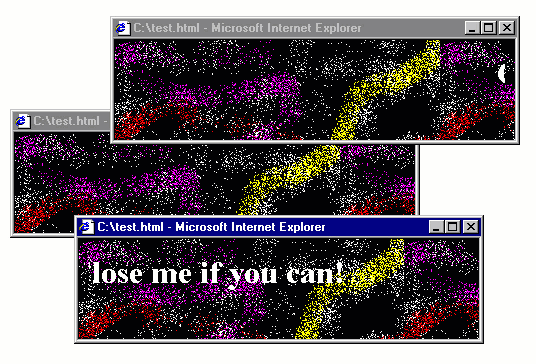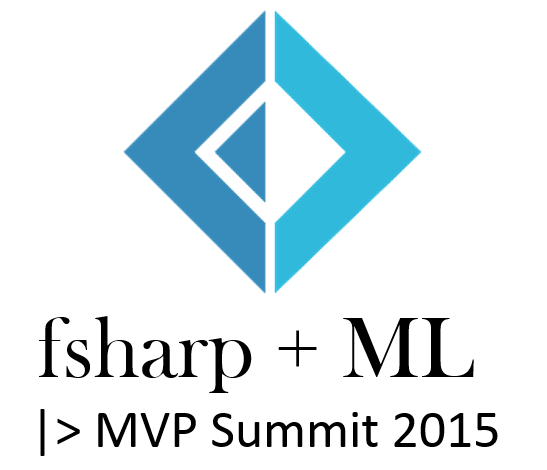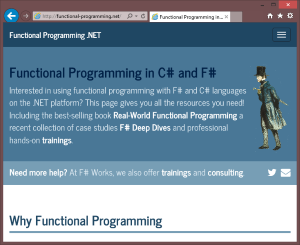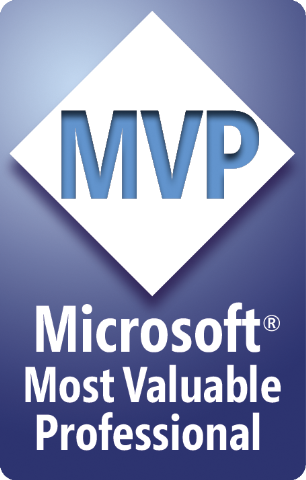Pop-up from Hell: On the growing opacity of web programs
I started to learn how to program in high school at the end of the 1990s using a mix of BASIC, Turbo Pascal and HTML with JavaScript. The seed for this blog post comes from my experience with learning how to program in JavaScript, without having much guidance or organized resources. This article continues a theme that I started in my interactive Commodore 64 article, which is to look at past programming systems and see what interesting past ideas have been lost in contemporary systems. Unlike with Commodore 64, which I first used in 2018 in the Seattle Living Computers museum, my perspective on the Early Web may be biased by personal experience. I will do my best to not make this post sound like a grumbling of an old nerd! (I thought this only comes later, but I may have been wrong...)

The 1990s, the web had a fair amount of quirky web pages, often created just for fun. The GeoCities hosting service, which has partly been archived is a witness of this and there are even academic books, such as Dot-Com Design documenting this history.
Some of the quirky things that you could do with JavaScript included creating roll-over effects (making an image change when mouse pointer is over it), creating an animation that follows the cursor as it moves and, of course, annoying the users with all sorts of pop-up windows for both entertaining and advertising purposes. Annoying pop-ups will be the starting point for my blog post, but I'll be using those to make a more general and interesting point about how programs evolve to become more opaque.
This blog post is based on a talk Popup from hell: Reflections on the most annoying 1990s program that I did recently at an (in person!) meeting of the PROGRAMme project. Thanks to everyone who attended for lively discussion and useful feedback!
Published: Friday, 8 October 2021, 1:14 PM
Tags:
academic, research, web, philosophy, talks
Read the complete article
Upcoming F# events - learn Suave, FsLab & more!
Some people in the F# community have reputation for traveling too much. I do not know how that is possible, but as it happens, I will be visiting a couple of places in June and doing a number of talks, workshops and courses. So, if you are thinking about getting into F#, web development with F# using the amazing Suave library, playing with the new trendy F# to JavaScript compiler called Fable, or learning about the recent features in FsLab and Ionide, then continue reading!

The map includes all my travels, but not all of the pins are for F# events. I'm visiting Prague just to see my family (even though there is a new awesome F# meetup there) and my stop in Paris is attending Symposium for the History and Philosophy of Programming (although we might still do something with the local F# group too).
Published: Tuesday, 31 May 2016, 2:51 AM
Tags:
c#, f#, functional programming, talks
Read the complete article
Philosophy of science books every computer scientist should read
When I tell my fellow computer scientists or software developers that I'm interested in philosophy of science, they first look a bit confused, then we have a really interesting discussion about it and then they ask me for some interesting books they could read about it. Given that Christmas is just around the corner and some of the readers might still be looking for a good present to get, I thought that now is the perfect time to turn my answer into a blog post!
So, what is philosophy of science about? In summary, it is about trying to better understand science. I'll keep using the word science here, but I think engineering would work equally well. As someone who recently spent a couple of years doing a PhD on programming language theory, I find this extremely important for computer science (and programming). How can we make better programming languages if we do not know what better means? And what do we mean when we talk about very basic concepts like types or programming errors?
Reading about philosophy of science inspired me to write a couple of essays on some of the topics above including What can programming language research learn from the philosophy of science? and two essays that discuss the nature of types in programming languages and also the nature of errors and miscomputations. This blog post lists some of the interesting books that I've read and that influenced my thinking (not just) when writing the aforementioned essays.
Published: Thursday, 10 December 2015, 1:42 PM
Tags:
philosophy, research, talks
Read the complete article
F# + ML |> MVP Summit: Talk recordings, slides and source code

I was fortunate enough to make it to the Microsoft MVP summit this year. I didn't learn anything secret (and even if I did, I wouldn't tell you!) but one thing I did learn is that there is a lot of interest in data science and machine learning both inside Microsoft and in the MVP community. What was less expected and more exciting was that there was also a lot of interest in F#, which is a perfect fit for both of these topics!
When I visited Microsoft back in May to talk about Scalable Machine Learning and Data Science with F# at an internal event, I ended up chatting with the organizer about F# and we agreed that it would be nice to do more on F#, which is how we ended up organizing the F# + ML |> MVP Summit 2015 mini-conference on the Friday after the summit.
Published: Wednesday, 18 November 2015, 3:03 AM
Tags:
f#, fslab, talks, machine learning, data science
Read the complete article
Upcoming F# book and event deals

Since I submitted my PhD thesis in December, I had a little bit of time to finish some of the things that I wanted to do for a really long time, but never quite found time to actually do them. This included getting the R provider to work on Mac and also creating a new web site for my various functional programming trainings and books. I even have a nice domain name:
The page also discusses a couple of business reasons for looking into functional programming. So, if you're a business person wondering why you should send your developers on an F# course, the site has the answers for you too! (Or if you are developer and need a page for your boss.) The other place to check out is the official F# Software Foundation web page is another great resource and the testimonials hosted there.
The page has some information about the various trainings we're offering at fsharpWorks and about the two F# books I co-authored (Real-World Functional Programming and brand new F# Deep Dives). I'm happy that we can offer some special deals on both the books and the F# FastTrack course in London, so if you're considering getting into F#, now is a good time!
Published: Friday, 27 March 2015, 12:16 PM
Tags:
c#, f#, functional programming, talks
Read the complete article
Why you should learn F# in 2015 (and how)?

I guess that it might be a bit too late for adding to your list of new year's resulution now. But just if you still have an empty slot (or in case an originally taken slot has become available), your new year's resolution should be to get involved with F#!
Obviously, the goal of this blog post is to sell you some of my F# trainings and other materials - including the online course on F# in Finance and our FastTrack to F# course in London and New York and also the F# Deep Dives book. But to conceal this fact, I'm going to fill most of the blog post with useful information about F#, the F# Software Foundation and the F# community (but if you really just want to read about my courses, scroll down to the second section).
Published: Wednesday, 7 January 2015, 2:36 PM
Tags:
c#, f#, functional programming, talks
Read the complete article
Welcome fsharpWorks & upcoming F# events

If you are following me or the #fsharp hashtag on Twitter, you might have already come across a link to fsharpWorks or one of the upcoming F# events organized by fsharpWorks. So, what is fsharpWorks and what are we planning for you?
Published: Tuesday, 20 May 2014, 2:47 PM
Tags:
c#, f#, functional programming, talks
Read the complete article
Hello New York. Learn some F#!

Exactly two weeks ago, I started a three month internship at BlueMountain Capital in New York. They have a technical blog and should be well known to the F# community thanks to the R type provider which was written by Howard Mansell (@hmansell). I'll have the pleasure of working with Howard on some more open source data-science related tools for F# (and C#). I'll write more about these when we have something to share, but if you want to contribute and help us, join the Data and Machine Learning working group at F# Foundation.
Aside from my work, I'm also happy to get involved with the great F# community in New York! We already have some events planned - Progressive F# Tutorials and FastTrack to F# are scheduled for September 16.-19. so you can become an F# guru in 4 days :-). But I'm also happy to have a chat with anyone interested in F# and perhaps do a lunch time talk, if you need to convince your colleagues or boss that F# is a good choice.
Published: Thursday, 29 August 2013, 3:02 PM
Tags:
f#, training, talks, new york
Read the complete article
Upcoming F# talks and trainings (London, NYC & Boston)

After a few years, I finally managed to find the time to attend the MVP Summit this year. The Summit is an annual event where people who are active in Microsoft technical communities come to the Microsoft headquarters to learn about new things (and, of course, tell them how they should be doing their job :-)). The Summit is a great place to meet interesting people (so if you're reading this and will be there, definitely get in touch!)
The good news - for those interested in F# - is that I'll be doing two F# talks on the way. I'll stop in Boston on February 13 and then in New York on February 25. I'll be talking about different topics (Google tells me that the distance is only 216 miles!)
Published: Thursday, 7 February 2013, 11:00 PM
Tags:
events, talks, trainings, f#, london, new york
Read the complete article